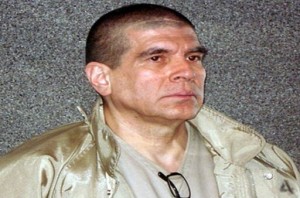Jose Antonio Acosta-Hernandez, the Juarez Drug Cartel’s leader in Juarez and Chihuahua, Mexico, also pled guilty in El Paso, Texas last week, and was sentenced to life in prison for his participation in drug trafficking and numerous acts of violence in connection with the Barrio Azteca gang.
Despite these successes, the War on Drugs has been an abject failure. Drug smuggling and distribution are currently estimated to be a $300-$400 billion global business.
In a recent article, Jess Rigelhaupt, an assistant professor of history and American studies at the University of Mary Washington noted that the U.S. currently has more than 2.3 million people behind bars. One in every 100 adults is in jail. The incarceration rate is 750 per 100,000 residents, the highest rate in the world. We have 5 percent of the world’s population and 25 percent of the people in jail. We imprison people at a rate five times higher than comparable Western industrial nations. More than half of new prison sentences to state prisons between 1985 and 2000 were for drug offenses.
According to the Drug Sense website, the U.S. federal government spent over $15 billion on the war in 2010, which amounts to about $500 per second. Someone is arrested for violating a drug law every 19 seconds. Police arrested an estimated 858,408 persons for cannabis violations in 2009. Of those charged with cannabis violations, approximately 89 percent were charged with possession only. An American is arrested for violating cannabis laws every 30 seconds.
Last November, president Juan Manuel Santos of Colombia declared that market alternatives to deal with narcotics trafficking should be considered. In February, President Otto Perez Molina of Guatemala called for a debate on drug regulation to reduce violence in Latin America. Costa Rica, Nicaragua, Panama, Honduras and Mexico all voiced support for the initiative.
Three weeks ago, at the 55th annual session of the Commission on Narcotic Drugs in Vienna, Austria, Fernando Henrique Cardoso, former president of Brazil and chair of the Global Commission on Drug Policy, said, “There is a clear rise in public perception on the flaws of the current approach to deal with drugs in our society. We can no longer afford the levels of violence in Mexico, Brazil, Central America and West Africa, the trillions of dollars spent on this endless war and the obstacles it presents to harm reduction policies. It is about time that the UN and politicians in office engage on a constructive debate towards decriminalization, regulation, and public health programs that may reduce violence whilst preventing and relieving the suffering of drug abusers.”
I couldn’t agree more.

